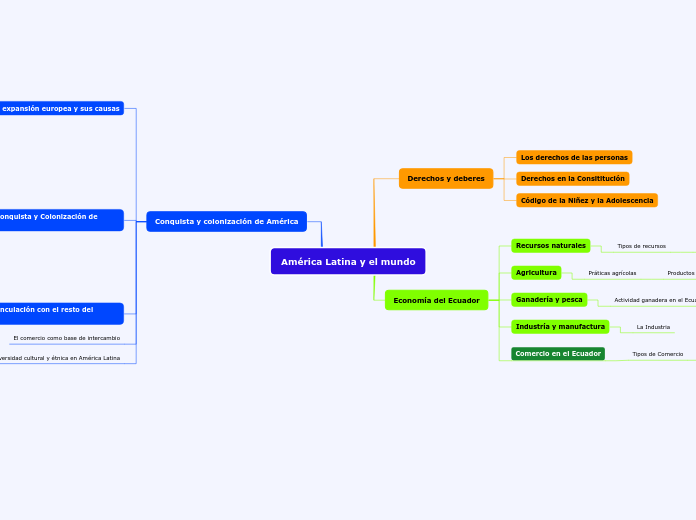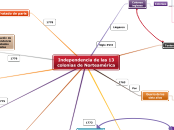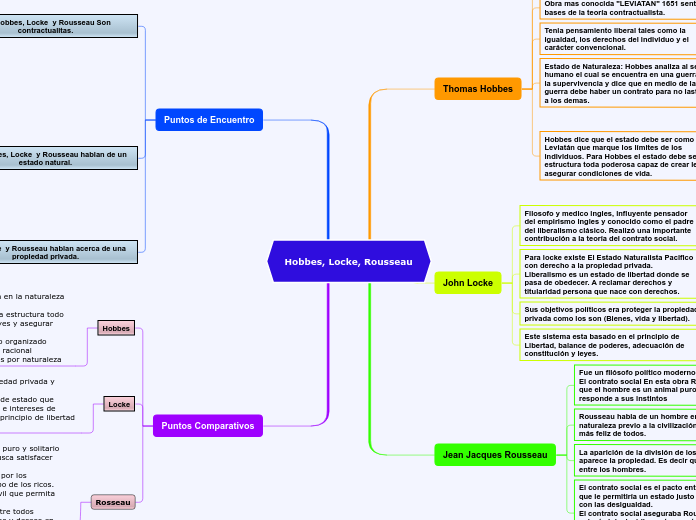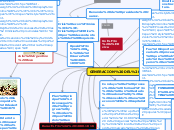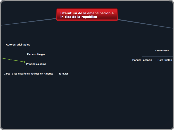América Latina y el mundo
In linguistics, syntax is the set of rules, principles, and processes that govern the structure of sentences in a given language, usually including word order.
Conquista y colonización de América
A complex sentence is a sentence that contains an independent clause and one or more dependent clauses.
An independent clause can stand alone as a sentence, but a dependent clause even though it has a subject and a verb cannot stand alone.
Diversidad cultural y étnica en América Latina
El comercio como base de intercambio
América y su vinculación con el resto del mundo
The subject clause is a dependent clause that acts as a subject.
El proceso de Conquista y Colonización de América
A predicative clause may be introduced by conjunctions - that, whether, whether... or, as, as if, as though, because, lest, the way - or connectives.
The latter may be conjunctive pronouns - who, whoever, what, whatever, which - or conjunctive adverbs - where, wherever, when, whenever, how, why.
Europa
La conformación de los imperios coloniales
América
Crisis demográfica
Cambio dramático en la organización política, económia y social
Mestizaje
La colonización inglesa
La colonización portuguesa y francesa
Características de la Conquista española
La Conquista española de América
Los procesos de conquista
La expansión europea y sus causas
The object clause is a phrase on which a verb performs an action. It falls at the end of a sentence, and is governed by a verb or a preposition.
Los viajes de exploración de otros países
Portugal y España lideran la expansión ultramarina europea
El Renacimiento y el humanismo
Economía del Ecuador
Comercio en el Ecuador
Tipos de Comercio
Otras formas de intercambio
Industría y manufactura
See the example below and try to create your own simple sentences.
Tim is driving the car with his mother.
La Industria
Ganadería y pesca
See the example below and try to create your own simple sentences.
Tim is the driver.
Actividad ganadera en el Ecuador
Formas de producción
Pesca
Agricultura
See the example below and try to create your own simple sentences.
Tim drives the car.
Práticas agrícolas
Productos agrícolas
Destino de los productos agrícolas
Recursos naturales
See the example below and try to create your own simple sentences.
Tim drives.
Tipos de recursos
Regiones del Ecuador
Utilidad y necesidad de preservación
Derechos y deberes
Código de la Niñez y la Adolescencia
The attribute is defined as a quality or characteristic of a person, place or thing.
Derechos en la Consititución
The predicative is defined as an adjective or noun forming or contained in the predicate.
Its main trait is that it serves to express a property that is assigned to a 'subject'.
For e.g.: The dog is old.
Los derechos de las personas
Traditional grammar defines the object in a sentence as the entity that is acted upon by the subject.
